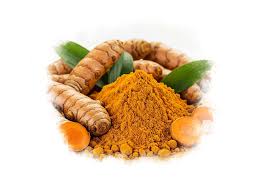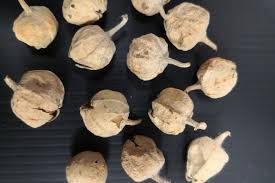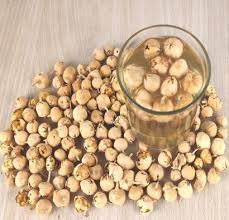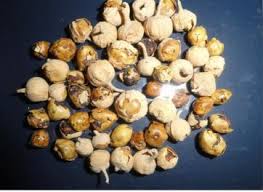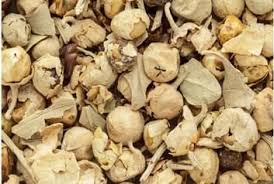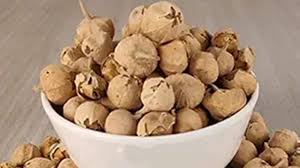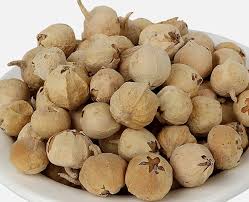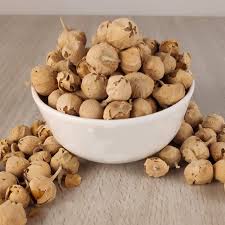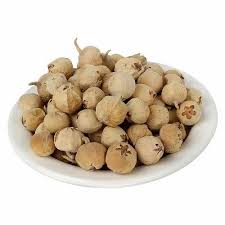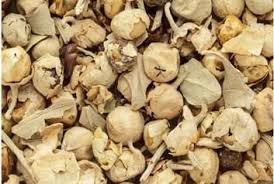Paneer Dodi in Unani and Siddha Medicine
Natural remedies have always played a vital role in the traditional healing systems of India. While Ayurveda is widely known and celebrated, the Unani and Siddha systems of medicine are equally rich in herbal knowledge and have served millions for centuries. One such powerful herb known across these traditions is Paneer Dodi (Withania coagulans), also called Indian Rennet or *Paneer Phool.
Known for its remarkable impact on metabolic and digestive health, Paneer Dodi is not only recognized in Ayurveda but also widely documented in Unani pharmacopoeia and Siddha texts. Its usage in these two systems underscores its holistic healing power, especially for blood sugar regulation, liver detoxification, and inflammation control.
At Dirghaanshi, we celebrate the unity of Indian traditional medicine systems. This article explores how Paneer Dodi is used in Unani and Siddha medicine, what conditions it treats, its classical references, and how its benefits align with modern wellness needs.
Long Description
What is Paneer Dodi?
Paneer Dodi is a small, round, dried flower-like fruit obtained from the shrub Withania coagulans. It is native to dry regions of India and Pakistan and belongs to the Solanaceae family. Known for its milk-coagulating properties, its real value lies in its medicinal effects, especially in blood sugar control and liver support.
Common names:
Paneer Phool
Paneer Dodi
Indian Rennet
Rishyagandha (Sanskrit)
Doodhi Phool
Withania coagulans (Botanical)
Paneer Dodi in Unani Medicine
Understanding Unani Medicine
Unani medicine is based on Greco-Arabic principles and focuses on maintaining the balance of the four humors—blood, phlegm, yellow bile, and black bile. Herbs are classified based on their temperament (Mizaj) and therapeutic action.
Paneer Dodi is classified in Unani medicine as having a hot and dry temperament, making it effective in balancing cold and moist imbalances, typically associated with phlegm-related disorders.
Traditional Unani Uses of Paneer Dodi
Diabetes (Ziabetus Shakri)
Paneer Dodi is one of the preferred herbs in Unani formulations for reducing excessive blood sugar. It works by:
Strengthening liver function
Enhancing insulin sensitivity
Reducing excess heat and thirst
Liver Disorders (Waram-e-Jigar)
It is used in herbal decoctions (Joshanda) to reduce liver swelling and improve bile flow. The herb purifies the blood and supports detoxification.
Obesity (Saman-e-Mufrit)
Due to its hot and dry temperament, it helps in reducing excess fat and water retention.
Urinary Disorders (Salsa al-Baul, Habs al-Baul)
Paneer Dodi is used in Unani formulations to clear urinary tract infections and promote healthy urination.
Common Unani Formulations Using Paneer Dodi
Majoon Suranjan – For joint pain and metabolic imbalance
Sharbat Kasni with Paneer Dodi – For liver and spleen enlargement
Hab-e-Muqil – In combination with other herbs for chronic constipation and liver sluggishness
Paneer Dodi in Siddha Medicine
Understanding Siddha Medicine
Siddha medicine is one of the oldest systems in the world, rooted in Tamil culture. It is based on the principle of Five Elements (Earth, Water, Fire, Air, and Ether) and classifies diseases into three humors—Vata, Pitta, and Kapha.
In Siddha, Paneer Dodi is considered a cooling and bitter herb, helpful in balancing Pitta and Kapha doshas. It is known for its effects on blood purification, diabetes, ulcers, and skin diseases.
Traditional Siddha Uses of Paneer Dodi
Neerizhivu (Diabetes)
Siddha texts mention Paneer Dodi as a potent Nivarana (preventive) and Nivarni (curative) herb for diabetes. It is often consumed with neem, turmeric, or black cumin.
Pitha Noigal (Liver and Bile Disorders)
Used to treat liver congestion, bile overflow, and indigestion caused by high Pitta.
Kudineer Chooranam (Herbal Decoction)
Paneer Dodi is included in Siddha decoctions for:
Excessive thirst
Burning sensation
Excessive urination
Joint inflammation
Ulmaga Noi (Skin Ailments)
The paste of Paneer Dodi is used externally for eczema, boils, and chronic ulcers.
Siddha Formulations Containing Paneer Dodi
Nivaradi Kudineer – Anti-diabetic herbal decoction
Aavarai Kudineer + Paneer Dodi – For skin and blood disorders
Manappagu – A herbal syrup where Paneer Dodi is used for liver cleansing
Scientific Validation of Traditional Uses
Modern research backs the traditional claims made by Unani and Siddha systems regarding Paneer Dodi:
Anti-diabetic: Clinical studies have shown Paneer Dodi significantly reduces blood glucose levels and improves insulin response.
Hepatoprotective: Trials on rats show it reduces liver enzyme levels and promotes tissue repair.
Anti-inflammatory: Inhibits cytokines and reduces inflammatory markers in chronic disease.
Antioxidant: Contains withanolides and flavonoids that help neutralize free radicals.
This scientific backing enhances the reliability of Unani and Siddha knowledge and reinforces the value of Paneer Dodi in integrated health systems.
How to Use Paneer Dodi Based on These Systems
Unani Decoction
Boil 5–8 flowers of Paneer Dodi with other herbs like Kasni (Chicory) and dry ginger. Filter and drink once a day.
Siddha Kudineer
Prepare decoction by boiling Paneer Dodi with Aavarai leaves, turmeric, and black cumin. Consume before meals.
Powdered Form
Take 1 tsp Paneer Dodi powder with warm water in the morning. Add honey if bitter taste is an issue.
External Use
Make a paste from powdered Paneer Dodi with rose water for skin inflammation, boils, or ulcers.
Caution and Dosage
Consult a qualified Siddha or Unani practitioner before use.
Not recommended for children, pregnant women, or those on insulin without supervision.
Always monitor blood sugar if you are on medication.
Start with low doses to check body reaction, especially if combining with other herbs.
Why Dirghaanshi Offers Authentic Paneer Dodi
At Dirghaanshi, we recognize that the effectiveness of traditional remedies lies in purity, sourcing, and method of preparation. Our Paneer Dodi is:
Sourced ethically from tribal and forest communities
Sun-dried and preserved without chemicals
Tested for heavy metals and microbial safety
Packaged sustainably to maintain herbal potency
We also share knowledge from Unani, Siddha, and Ayurvedic systems, helping our customers make informed herbal choices rooted in tradition and science.
Conclusion
The widespread use of Paneer Dodi in Unani and Siddha medicine proves its status as a truly versatile and powerful herbal remedy. Whether it is managing blood sugar, purifying the blood, or supporting liver health, this herb has earned a well-deserved place across Indian traditional healing systems.
At Dirghaanshi, our goal is to reconnect modern lives with time-tested, regionally diverse healing practices. Understanding how different systems like Unani and Siddha honor Paneer Dodi helps you appreciate the holistic and integrative approach that natural medicine offers.
If you are seeking balance, detoxification, or metabolic health through herbal routes, Paneer Dodi is a wise, historically supported choice.


